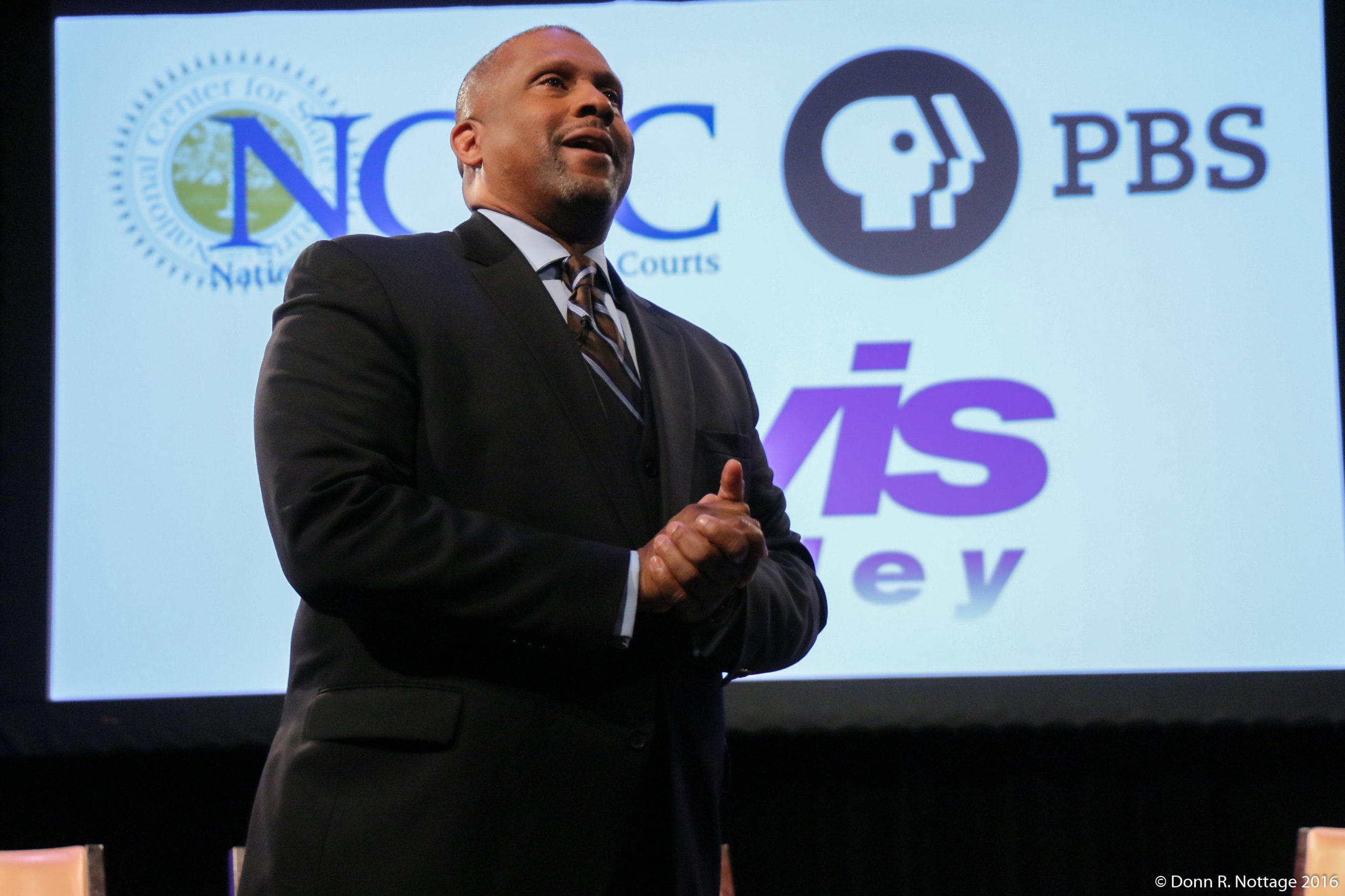
Cross the American criminal justice system, and – if you are unlucky — prepare for crushing debt.
Here are a smattering of the possible fees awaiting defendants: for court appearances, for room and board in jail or prison, for court-required drug testing, counseling or community service, for a public defender or for electronic monitoring.
In the two decades, tens of millions of Americans have been fined or billed as part of their punishment for a criminal offense. And this practice has spiked — in 1986, 12 percent of those incarcerated were also fined, by 2004 some 37 percent were slapped with fines, while 66 percent faced both fines and fees.
Late fees and collection penalties compound these debts into punitive amounts, especially for anyone living in poverty. In 2011, the city of Philadelphia sent bills on unpaid criminal justice debts to more than 20 percent of its residents, with a median debt of $4,500.
One notorious example surfaced in a Department of Justice investigation of the Ferguson Police Department in Missouri. It showed the town of Ferguson set more than $3 million in revenue targets for criminal justice fines and fees in 2015, meant to cover more than 20 percent of the town’s operating budget.
“It’s become painfully obvious after Ferguson — where the courts were an ATM for the municipality,” said Ohio Supreme Court Justice Maureen O’Connor, “and there is no justification for that.”
Yvette McGee Brown, a former Ohio Supreme Court justice, added, “People of color have been complaining about this for years. Poor people have been complaining about this for years.” She pointed out that “a $100 fine may be no big deal” to a judge sitting on the bench, but catastrophic to a citizen making $7 per hour. “Our orders have real impact on people.”
Both women spoke up in a roundtable discussion taped in Cleveland for the Tavis Smiley show, part of his “Courting Justice” series, which has included stops in Los Angeles and Little Rock. The segments recorded in Cleveland will broadcast nationally at 11:30 p.m. December 13 and 14 on PBS stations.
“We’ve created the equivalent of a modern-day debtor’s prison in fees, fines and bail that basically puts a price tag on freedom,” Smiley told the Cleveland audience.
Judge Ronald B. Adrine, presiding judge of Cleveland Municipal Court, is a national leader on combatting the scourge of fines, fees and bail falling most heavily on the poor. “Looked at from any objective standpoint, [defendants] who are low income, low risk, these people are being absolutely preyed upon,” he said. “We’ve allowed numerous people to fall into this crack and be piled on so that they can never climb out of this hole.”
One consequence: these debts prevent citizens from getting a driver’s license in many states. A year ago the White House convened a seminar on this topic, and Adrine described it as transformative. He returned to Cleveland and convened the city’s 14 municipal judges: “We changed nonviolent misdemeanors,” he said, “so that you are allowed to get out on your signature [instead of posting bail].”
Asked point-blank by Smiley if the U.S. criminal justice system is fundamentally fair, Adrine said, “I believe it is fundamentally fair but not always fair.” Judges, he stressed, “are not trying to let out vicious criminals on the street. But we want to make sure that people who are low risk are not destroyed by being kept in jail.”
McGee Brown said the role of poverty cannot be overestimated. “There is a reason O.J. [Simpson] got off,” she said. “There is a reason when you are wealthy you are more likely to get off, even if you’ve committed a horrific crime.” O’Connor added, “You cannot have justice in an underfunded system, such as we have, with overburdened public defenders, judges watching the clock moving cases along and prosecutors acting on a formula too often.”
Mansfield Frazier, Cleveland vintner and community activist, asked, “How can the courts escape the clutches of the bail bond industry? They have a strong lobby.”
McGee Brown retorted, “Their power isn’t as great as they think it is. I don’t make decisions based on what the bail bondsmen want . . . It’s really about the judges pushing back.”
The panelists spoke of the importance of judicial education, adequate funding and efforts to combat voter apathy in electing judges. “Judges have tremendous power and I don’t think the voter recognizes it,” said Lakewood Municipal Court Judge Patrick Carroll.
Adrine underscored Carroll’s point: “Politics is the art of who lives, who dies and who pays.”
“Courting Justice” will become a yearlong initiative involving Ideastream, the City Club of Cleveland, the Cleveland Foundation and the Cleveland Metropolitan Bar Association. The next convening will be January 19 at the bar association. Interested people can call 216-870-1203 for more information.
“It is our hope that we can get to the root of this challenge,” said Ronn Richard, president of the Cleveland Foundation. “We can reflect on the procedures and policies that can so deeply derail the lives of the disenfranchised.”
And then change them.
